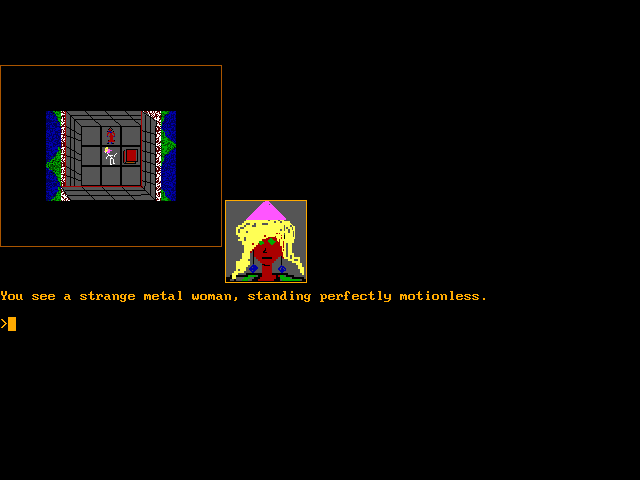Carlos' Bitch1
Arcane
So I can ready my sword, but not my shield and vice versa. Has anyone found a way to ready multiple items?
Seconded. I am having an issue with this as well.
So I can ready my sword, but not my shield and vice versa. Has anyone found a way to ready multiple items?















 Updated OP. So, was this inspired by Ultima Underworld by any chance?
Updated OP. So, was this inspired by Ultima Underworld by any chance?














is that the text adventure or RPG?















Sorry the repost - the server didn't respond right away. Maybe that second one can be deleted?















But the most devastating letter I ever got was this one, which made me realize there might be a lot more people than I thought who liked the games. but just didn't want to pay the 10 or 15 bucks I usually charged:
"Do you have anything as good as MadMan, but for FREE?"
You know, its funny - I'm always broke, but even I have 15......well......actually.....!!Dr. D.















Second, although I did love the game, there was one moment in your writing that caused me to pause and ask wtf?
[Pic of only black woman in game speaking in ebonics is not showing up. "I cooks fer th' king, but jes now ah mo' concerned with mah chile here..."]
Now you did a great job actually recognizing that black people might exist in your world. I'm not sure if Richard Garriott ever even had them in the Ultima series. I remember Britannia was full of crackers for the most part, oh and some gypsies I wasn't supposed to approach in Ultima 6. But as for the above... wow...









Second, although I did love the game, there was one moment in your writing that caused me to pause and ask wtf?
[Pic of only black woman in game speaking in ebonics is not showing up. "I cooks fer th' king, but jes now ah mo' concerned with mah chile here..."]
Now you did a great job actually recognizing that black people might exist in your world. I'm not sure if Richard Garriott ever even had them in the Ultima series. I remember Britannia was full of crackers for the most part, oh and some gypsies I wasn't supposed to approach in Ultima 6. But as for the above... wow...
For the record:
http://codex.ultimaaiera.com/wiki/Category:Ultima_VII_Portraits
















